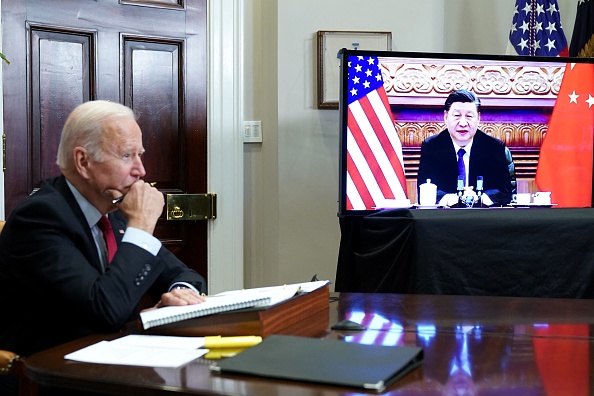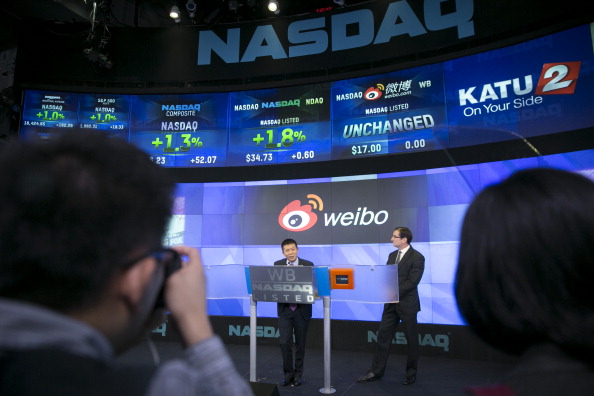
 One Hand Cannot Clap
One Hand Cannot ClapPresident Joe Biden and President Xi Jinping spoke for nearly two hours today to discuss China-U.S. relations, and issues of common concern including the Russia-Ukraine war. During the high-stakes call, Biden tried to convince China to stay on the sidelines of the conflict in Ukraine, and to turn down Russian requests for military or economic aid in its war with Ukraine.
A readout from China described the call as "constructive." Xi apparently used two Chinese idioms to Biden: "One hand cannot clap," meaning the two sides need to come together to make any progress in ending the war, and, he said, "Only the one who tied the bell to the tiger can untie it," implying that the U.S. and NATO will need to "untie the bell" themselves, and China will support efforts.
China's response to the Ukraine invasion has been worrying for United States officials. Beijing has neither fully supported nor directly opposed the war, and the Biden administration has been mindful about the risks of inviting an open clash with China while simultaneously facing down Russia. But China-U.S. cooperation on the issue is essential for ensuring the conflict does not escalate.
Earlier this week, Beijing denied reports that Russia had asked China for military equipment and other support following the start of its invasion of Ukraine, saying that "the U.S. has been spreading disinformation and this is very dangerous."
"We need to advance a diplomatic solution of the situation instead of further escalating the situation," Chinese foreign ministry spokesman Zhao Lijian said at a news briefing.
Read more in "How China Can End the War in Ukraine," by Stephen Roach, a Faculty Member at Yale University.
 Historic Rout
Historic RoutIn recent months, Chinese companies have been caught in a perfect storm that has been causing havoc for many of them. Chinese government regulators started pressuring large technology companies, making domestic and foreign investors quite nervous and leading to a wave of sell-offs. U.S. and Chinese regulators also started auditing Chinese companies listed in major U.S. exchanges.
There are also concerns that Beijing's ties with Russia could spark new U.S. sanctions, leading to speculation that China's equities are risky. That's adding to worries about regulatory developments including a possible delisting from the U.S. exchanges. Ongoing lockdowns in major Chinese cities are only exacerbating the situation.
All of these concerns resulted in sharp losses in the stock market this week. But President Xi Jinping's economic czar, Vice Premier Liu He made supportive comments aimed squarely at several of investors' biggest concerns. The comments helped Chinese stocks quickly rebound, jumping more than 30%, after three days of heavy losses, with Hong Kong's main benchmark staging its biggest single-day rally since the global financial crisis. Chinese officials also said they would introduce market-friendly policies and keep the capital market running smoothly, according to China's state news agency, Xinhua News. They noted that "any policy that could move markets should be developed in coordination with financial regulators" as well.
 Another Resurgence
Another ResurgenceChinese officials are fighting to contain a Covid-19 resurgence, the worst outbreak since the early days of the pandemic. As China seeks to maintain its zero-Covid strategy, more lockdowns and restrictions are further threatening an already battered global economy and supply chain. With China hosting nearly one-third of global manufacturing, the most recent lockdowns disrupted production of finished goods like Toyota and Volkswagen cars and Apple's iPhones.
But China's Xi Jinping emphasized this week that containing collateral damage to the economy is one of his primary focuses during this outbreak, potentially hinting at an eventual loosening of the zero-Covid strategy. China must "strive to achieve the maximum prevention and control at the least cost, and minimize the impact of the epidemic on economic and social development," he said.
The oil industry has also been largely impacted by this outbreak. After Covid-19 cases surged last week, oil prices dropped around 5% with lockdowns in China potentially threatening demand, though the prices have already rebounded with growing concerns about the war in Ukraine disrupting Russia's energy supplies.
Meanwhile, the oil industry is being further affected by talks about oil contracts between Saudi Arabia and Beijing. The two governments are in active discussions about Saudi Arabia pricing some of its oil sales to China in yuan. Analysts say the move would "dent the U.S. dollar's dominance of the global petroleum market and mark another shift by the world's top crude exporter toward Asia." While conversations with China about yuan-priced oil contracts have been ongoing for nearly six years, the actual prospects have accelerated this year as the Saudis have grown increasingly unhappy with the U.S.
Saudi Arabia has also invited Xi to visit Riyadh as they look to deepen ties with Beijing amid strained relations with the U.S. The trip would be Xi's first foreign travel since the Covid-19 pandemic began.
Read more in "Tectonic Shifts in Energy Production," by Han Liqun, a Researcher at China Institutes of Contemporary International Relations.
Prepared by China-US Focus editorial teams in Hong Kong and New York, this weekly newsletter offers you snap shots of latest trends and developments emerging from China every week, while adding a dose of historical perspective.
- 2022-03-11 Political Forecast
- 2022-03-04 Competitive Advantage
- 2022-02-25 A Sovereign Tightrope
- 2022-02-18 Strategic Disengagement
- 2022-02-11 In the Thick of It
- 2022-02-04 Year of the Tiger
- 2022-01-28 Zero-Sum
- 2022-01-21 An Uncertain Future
- 2022-01-14 Digital Advances
- 2022-01-07 The Dawn of a New Political Year
- 2021-12-17 Clamp Down
- 2021-12-10 Debating Democracy
- 2021-12-03 Managing Competition
- 2021-11-19 Responsible World Leadership
- 2021-11-12 A Historic Transformation
- 2021-11-05 A Green Rivalry
- 2021-10-29 Dry Tinder
- 2021-10-22 A Diplomatic Burn
